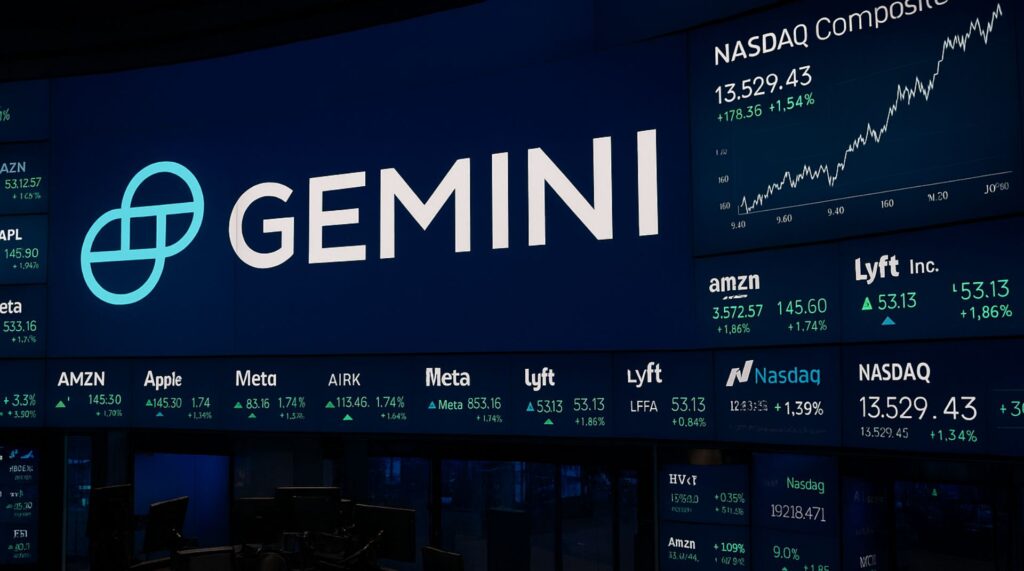Gemini began trading on the Nasdaq with a 32.2% first-day rise that set the company’s worth at $4.4 billion. The listing highlights growing interest in digital asset services while underscoring government questions that still exist. The news affects individuals and companies seeking asset holding and token support services and introduces doubt about whether the company’s revenue model will last.
Nasdaq debut and financing details
The initial public offer priced at $28 per share and raised $425 million, according to a source, and Nasdaq made another private placement of $50 million. The money flow and the agreement with Nasdaq seek to make it simpler for large companies to access digital assets and loan solutions through the merger of Gemini’s asset holding and token support services with the Calypso system.
Goldman Sachs and Cantor Fitzgerald were the chief companies that sold the shares for a start that probably had too many buyers, reflecting demand for investments involving digital money after several recent initial public offers. Market watchers, as cited by a source, warn that an early jump does not promise lasting outcomes, noting earlier debuts that saw peaks then falls; performance in the next weeks will be important to gauge user uptake and share liquidity.

Government rules and adherence
Gemini faces a probe by the Securities and Exchange Commission (SEC), according to a source, creating uncertainty about future government rules. The investigation could change how the company makes choices about adherence, identity checks, and money reports, while Nasdaq’s investment and the plan to serve big companies increase the need for firm adherence to U.S. rules and affect what international supervisors expect.
Key services: asset holding and token support
Asset holding is a service that controls private keys and digital items to lower the chance of loss or theft. Token support sets aside digital items to keep a computer network safe in exchange for payments, and its merger with asset holding platforms simplifies the service for big companies.
The deal combines new money and public notice that can speed up the use of digital currency services by big companies, but it also makes government checks and profit hopes bigger. Dangers mentioned by a source include net money losses the company reported and the SEC probe, factors that may change the company’s worth and the ease of buying or selling shares in the middle term.
Gemini’s start provides funding and a useful agreement with Nasdaq, but its path will depend on turning around losses and addressing government rule danger. The next few quarters will be very important to prove the worth it reached.


